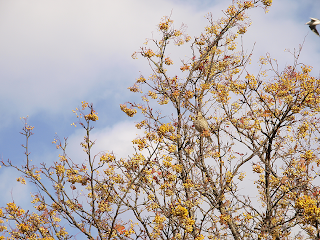It's been a long time since I last made these little bread rolls. And to be honest, I don't remember any of the butter leaking onto the oven floor and creating a stink last time - the second batch were on a baking tray with a rim, but by then the damage was done. I know I've done these when cooking for camps - maybe the kitchen was just too warm this evening. They were still lovely, and we managed to eat half the amount I made, along with a carrot, potato and celery soup.
Aberdeen Rowies - recipe from Elizabeth David's English Bread and Yeast Cookery
She describes them as "nice high flaky knobs of uneven size and shape", with a "homely" appearance.
Make a regular plain dough using 3/4 lb (about 2 3/4cups) strong white flour,2 tsp salt, 1/2 oz fresh yeast and about 1/2 UK pint (10 fluid ounces) tepid water. The dough should be a little soft, not too firm.
Cover and leave to rise in a warm place for about three-quarters of an hour.
Take 6 ounces (3 sticks) butter and cut into small pieces, divide in two and put half in the fridge.
On a surface dusted with cornflour or rice flour, roll the dough out into a rectangle approximately 10" x 8".Dot the butter over two thirds and fold as if you were making puff pastry. Roll out and turn a couple of times, again as for puff pastry. Cover and leave in a cool place or the fridge for about fifteen minutes.
Repeat the process with the other half of the butter, and again cover and leave in a cool place for at least fifteen minutes.
Roll out once more, making the rectangle as neat and regular as possible. With a sharp knife cut into approximately 24 pieces.
Arrange on baking sheets (with rims!!) which have been dusted with cornflour or rice flour.
Cover and leave in a cool place (not warm, or the butter will melt too much) for half an hour.
Bake in a hot oven - 220C, 425F, Gas 7 for about fifteen minutes, till golden.
Yes, it's a lot of butter - but then you don't butter them when you're eating them and I do try to balance our diet out.
I am so glad to have discovered that the Polish shops stock fresh yeast - even if it never seems to keep quite as well as the yeast I used to get from the Irish Yeast Company. Now I just need someone to tell me what all the various types of flour they also stock are and what they equate to.






































